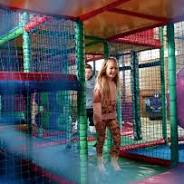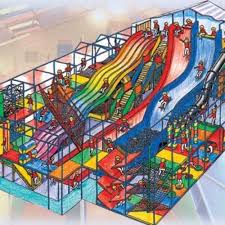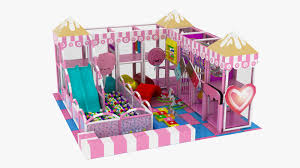Exploring the Benefits of Learning Centers in Modern Education
The Importance of Learning Centers in Education
Learning centers play a crucial role in modern education, offering students a dynamic and interactive way to engage with their learning material. These specialised spaces are designed to cater to different learning styles and abilities, providing a more personalised and effective learning experience for students.
One of the key benefits of learning centers is their ability to promote independent learning. By providing resources, tools, and activities that cater to individual interests and strengths, students are encouraged to take ownership of their learning journey. This not only fosters self-motivation but also helps develop critical thinking and problem-solving skills.
Furthermore, learning centers offer a collaborative environment where students can work together on projects, share ideas, and learn from one another. This social interaction enhances communication skills, teamwork abilities, and empathy – all essential qualities for success in the modern world.
Another advantage of learning centers is their flexibility. They can be tailored to suit specific subjects or topics, allowing students to delve deeper into areas of interest or focus on areas where they may need extra support. This personalised approach ensures that each student receives the attention and guidance they need to succeed.
In conclusion, learning centers are invaluable resources that complement traditional classroom teaching by providing a versatile and engaging space for students to learn, explore, and grow. By incorporating these innovative spaces into educational settings, we can empower students to become lifelong learners who are equipped with the skills they need to thrive in an ever-changing world.
Understanding Learning Centres: Benefits, Differences, Activities, Suitability, and Parental Involvement
- What are learning centers and how do they benefit students?
- How are learning centers different from traditional classrooms?
- What types of activities or resources are typically found in learning centers?
- Are learning centers suitable for students of all ages and abilities?
- How can parents get involved with their child’s learning at a learning center?
What are learning centers and how do they benefit students?
Learning centers are designated spaces within educational settings that offer a diverse range of resources, activities, and tools to support student learning. These specialised areas cater to different learning styles and abilities, providing a personalised and interactive approach to education. By offering a variety of materials and experiences, learning centers help students engage with their learning material in a hands-on and meaningful way. They promote independent learning, critical thinking skills, collaboration, and self-motivation among students. Ultimately, learning centers benefit students by providing a dynamic environment where they can explore their interests, receive targeted support in challenging areas, and develop essential skills that will prepare them for success in school and beyond.
How are learning centers different from traditional classrooms?
Learning centers differ from traditional classrooms in their approach to learning and teaching. While traditional classrooms typically follow a structured, teacher-led format with a focus on whole-group instruction, learning centers offer a more flexible and student-centred environment. In learning centers, students have the opportunity to explore topics at their own pace, engage in hands-on activities, and collaborate with peers in small groups. This individualised approach allows students to take ownership of their learning, develop critical thinking skills, and pursue their interests in a more personalised way. Unlike traditional classrooms where instruction is uniform for all students, learning centers cater to diverse learning styles and abilities, providing a more inclusive and dynamic educational experience.
What types of activities or resources are typically found in learning centers?
Learning centers are known for offering a diverse range of activities and resources to cater to the varied learning needs of students. Commonly found in learning centers are hands-on activities that promote experiential learning, such as science experiments, art projects, and interactive puzzles. In addition, educational games, reading materials, and multimedia resources like educational videos and computer programs are often available to enhance students’ understanding of different subjects. These centres may also provide specialised tools for specific subjects, such as math manipulatives or language learning aids. Overall, the wide array of activities and resources in learning centres aims to engage students in interactive and meaningful ways, fostering a deeper understanding of academic concepts while encouraging creativity and critical thinking skills.
Are learning centers suitable for students of all ages and abilities?
Learning centers are designed to be inclusive and adaptable, making them suitable for students of all ages and abilities. Whether a student is a young learner just starting their educational journey or an older student looking to enhance their skills, learning centers offer a flexible and personalised approach to learning. By providing resources, activities, and support tailored to individual needs, learning centers can cater to a diverse range of students, ensuring that each individual receives the guidance and assistance they require to succeed. The interactive and engaging nature of learning centers makes them accessible and beneficial for learners at any stage of their educational development.
How can parents get involved with their child’s learning at a learning center?
Parents can play a vital role in supporting their child’s learning at a learning center by actively engaging with the centre and their child’s educational journey. One way parents can get involved is by communicating regularly with the learning centre staff to understand their child’s progress, strengths, and areas for improvement. Attending parent-teacher meetings, workshops, and events organised by the learning centre can provide valuable insights into the child’s learning experience. Additionally, parents can reinforce learning at home by encouraging their child to practise skills learned at the centre, providing a conducive environment for studying, and showing interest in their child’s academic achievements. By fostering a collaborative relationship with the learning centre and staying involved in their child’s education, parents can positively impact their child’s learning outcomes and overall development.



